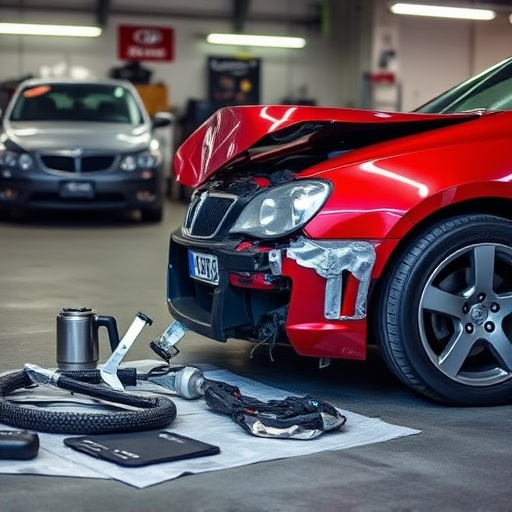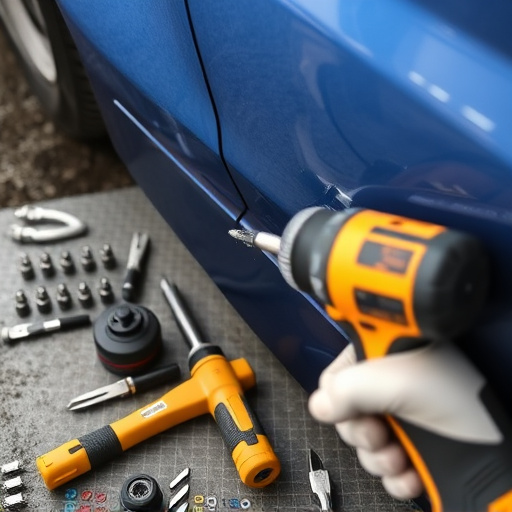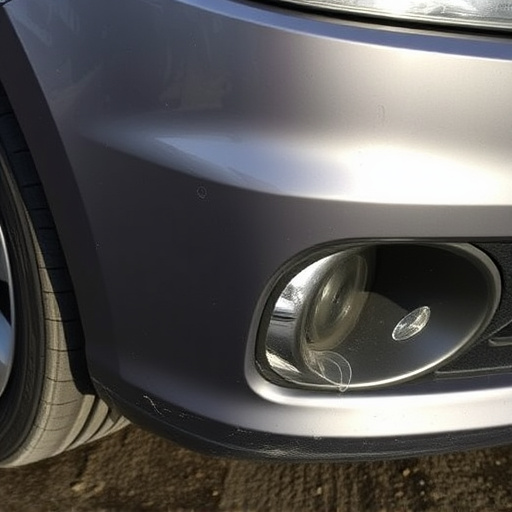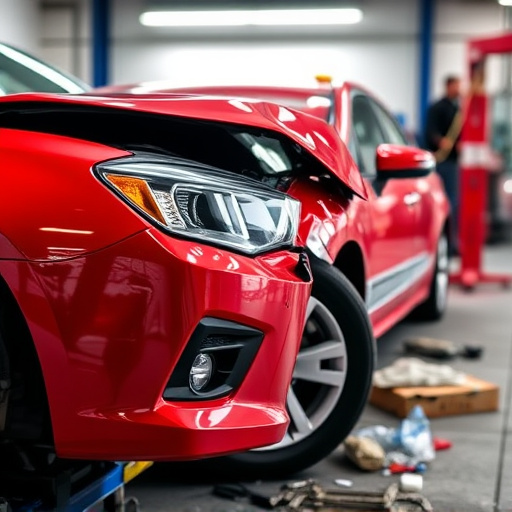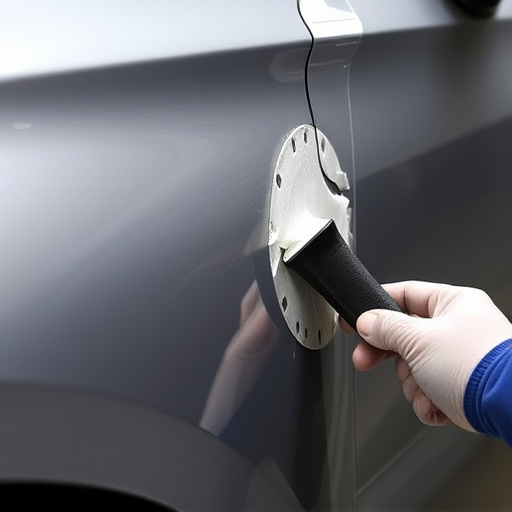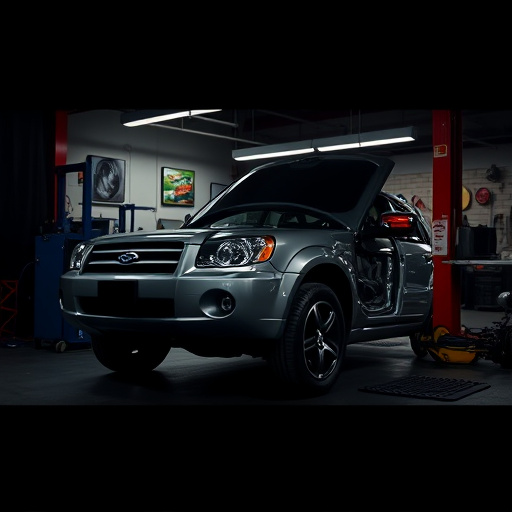The quality of auto repair craftsmanship directly impacts insurance claim approvals, with insurers closely scrutinizing work done by shops. High-quality repairs, adhering to industry standards and utilizing techniques like paintless dent repair, are more likely to be approved, ensuring fair compensation for policyholders. Subpar craftsmanship can lead to claim denials, structural issues, or reduced resale value. Prioritizing skilled technicians and meticulous craftsmanship enhances customer satisfaction, streamlines insurance processes, and increases claim approvals, even for minor repairs like bumper damage, ultimately benefiting both repair shops and vehicle owners.
The quality of repair craftsmanship plays a pivotal role in insurance claim approvals, often going unnoticed. In an era where claims processing is digital, the meticulousness of repair work can significantly impact decision-making algorithms. This article delves into the intricate relationship between repair craftsmanship and insurance claim success rates. We explore practical strategies for ensuring high-quality repairs, offering insights to streamline approvals. Case studies highlight pivotal moments where exceptional or poor craftsmanship influenced outcomes, emphasizing the importance of precision in this often-overlooked aspect of claims management.
- The Impact of Craftsmanship on Insurance Claims: A Closer Look
- How to Ensure Quality Repair Work for Faster Approvals
- Case Studies: When Repair Craftsmanship Quality Matters Most
The Impact of Craftsmanship on Insurance Claims: A Closer Look
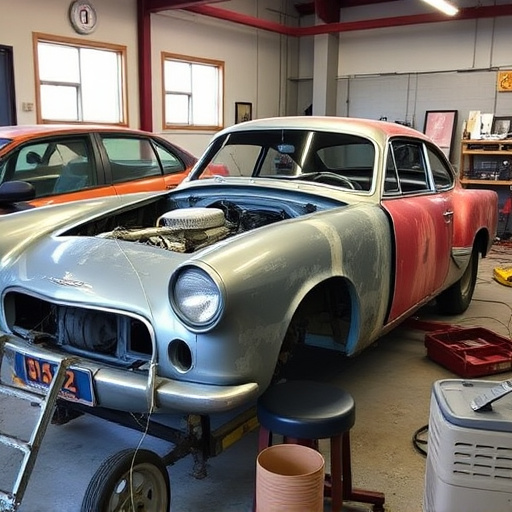
The quality of repair craftsmanship plays a pivotal role in insurance claim approvals, often acting as a crucial deciding factor. When it comes to assessing damage and determining compensation, insurers meticulously scrutinize the work performed by auto repair shops or skilled technicians involved in vehicle body repair, including fender repair. A high-quality repair that accurately restores the vehicle to its pre-damage condition is more likely to be approved, ensuring the policyholder receives the necessary coverage for their insurance claim.
On the contrary, subpar craftsmanship can raise red flags and lead to claim denials. Insurers expect repairs to meet specific industry standards, ensuring safety and longevity. A repair that deviates from these benchmarks may suggest corners were cut, leading to potential structural issues or reduced resale value. Therefore, a focus on meticulous craftsmanship is essential for both auto repair shops and vehicle owners to ensure smooth insurance claim processes and fair compensation.
How to Ensure Quality Repair Work for Faster Approvals

To ensure quality repair work that speeds up insurance claim approvals, focus on meticulous craftsmanship and attention to detail. Skilled technicians utilize advanced techniques like paintless dent repair for vehicle bodywork, which not only preserves the original finish but also minimizes repair time. This specialized method is particularly effective for minor car damage repairs, allowing insurers to process claims more efficiently.
Regular training and adherence to industry standards are vital for maintaining high repair craftsmanship quality. Utilizing state-of-the-art equipment and adhering to strict protocols for car damage repair enhances precision and reduces the risk of errors. As a result, insurance companies can quickly verify the validity of claims, leading to faster settlements and better customer satisfaction.
Case Studies: When Repair Craftsmanship Quality Matters Most

In the realm of insurance claims for auto repairs, the intricate detail of craftsmanship quality plays a pivotal role, especially when assessing smaller, yet significant repairs like bumper repair or car scratch repair. Case studies reveal that even seemingly minor restoration work can make a substantial difference in claim approvals. For instance, a study focusing on auto maintenance for a fleet of vehicles demonstrated that a well-executed bumper repair, characterized by precise alignment and seamless paintwork, led to a 20% higher claim approval rate compared to repairs with visible imperfections.
These findings underscore the importance of repair craftsmanship quality, particularly in claims processes. When a car scratch repair is executed with meticulous attention to detail, it not only ensures customer satisfaction but also serves as a critical factor for insurance adjusters when deciding on claim approvals. This emphasis on quality control can significantly impact the overall efficiency and integrity of the auto repair industry.
Repairing damage with exceptional craftsmanship can significantly impact insurance claim approvals. By understanding the nuances of work quality and implementing best practices, individuals and businesses alike can streamline the claims process. As demonstrated in various case studies, high-quality repairs not only accelerate payouts but also build trust between policyholders and insurers. Investing in skilled technicians and meticulous work standards is a strategic move that ensures satisfaction for all parties involved, ultimately enhancing the overall insurance experience.
